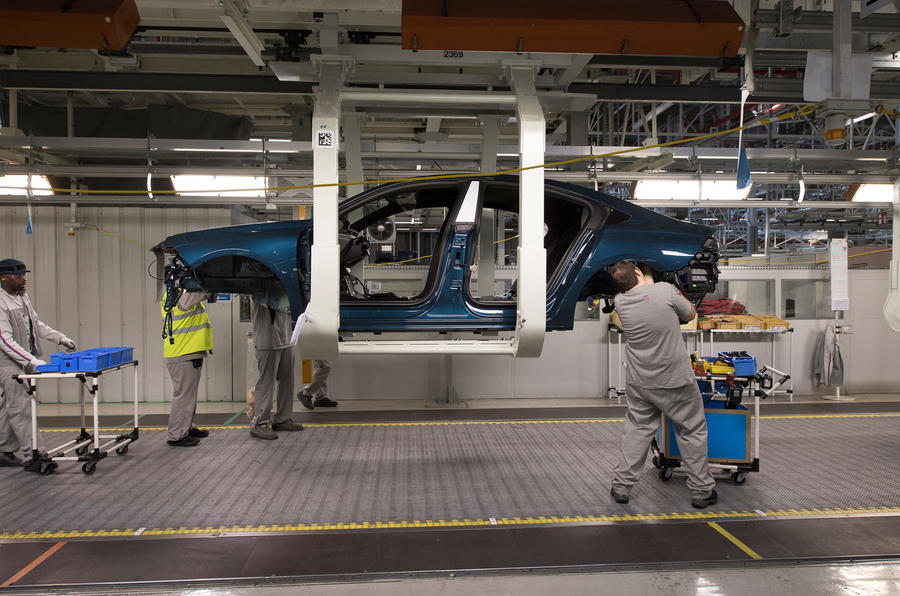New car registrations in the UK fell 24.6% in October compared with the same month last year, according to the latest industry figures.
The Society of Motor Manufacturers and Traders (SMMT) reports that 106,265 new cars were registered, which makes this the fourth consecutive monthly fall in registration figures. The market’s overall monthly performance was the weakest October since 1991.
The low numbers have been attributed to the ongoing semiconductor shortage, which has greatly slowed car production and extended new car waiting times by several months.
A 40.4% fall in fleet demand compared with September was also a major factor, with private demand falling by just 3.3%.
Despite this, electric car sales have continued to increase. Some 16,155 battery-electric vehicles (BEVs) were sold in October, with another 8382 being plug-in hybrids (PHEVs). As a result, 16.6% of all new car registrations this year have been plug-in electric vehicles. A further 9.1% of cars sold have been hybrid vehicles, which means that more than 25% of all cars sold this year have been electrified.
A total of 141,296 EVs have been sold so far in 2021, an 86% increase from last year, while diesel car sales have plummeted by 45.8% over the same period to just 124,633 units. Petrol car sales fell by 15.2% compared with this point last year, although they still make up the majority of the market, with 669,982 units sold since January.
The Vauxhall Corsa remains the best-selling car for the year to date, with 35,183 units sold – 7429 more than the Volkswagen Golf, its nearest competitor. However, the best-selling car in October was the Volkswagen Polo (3167 units), with the Corsa (2567 units) being relegated to fifth.
Despite a significant fall in registrations compared with the previous month, overall sales are up slightly on 2020 for the year to date. A total of 1,422,879 new cars have been registered in 2021, a 2.8% increase on last year.
“The current performance reflects the challenging supply constraints, with the industry battling against semiconductor shortages and increasingly strong economic headwinds as inflation rises, taxes increase and consumer confidence has weakened,” said SMMT chief executive Mike Hawes.
“Electrified vehicles, however, continue to buck the trend, with almost one in six new cars registered this year capable of zero-emission motoring, growth that is fundamental to the UK’s ability to hit its net zero targets.





Join the debate
Add your comment
Ludicrous car price inflation in recent times not mentioned then?
The car makers are closing the price gap between ICE cars with EVs to make EVs look more competitively priced whilst never reducing EV prices as everyone was expecting, as well as having a last hurrah for ICE models (hiding those huge ever-increasing list prices behind monthly finance payments).
My car is now 7 years old - prior to that I was buying a new one every 2 years or less but they can go do one now - I resent paying desirable car money for a small, underpowered yawn-box - you can't pay 'with your heart' money for a 'with your head' car when that car is way too expensive to appeal to your head either.
Buying a new fossil fuel car now is like buying a horse and cart just after the Ford Model T was launched, or buying a Nokia brick phone just after the iPhone arrived. Not only is it yesterday's technology, but it is likely to lose value at a phenomenal rate in the near future. Smarter buyers are either buying new EVs now, or holding back until the right EV comes along. This explains far more about what's happening in the new car market than just blaming chip shortages, which are ony one part of the story.
You're talking complete nonsense! ICE vehicles on this Planet will be here for many decades to come.
One aspect to the chip shortage is how manufacturers choose to use the ones they have. I am sure they are prioritising EVs to help them meet the CO2 figures they have and avoid fines.
I still want the SMMT to break down the sale of EVs between fleet and private buyers. Given the massive tax break CoCar drivers get with EVs, but how much they actually cost i imagine 90% plus of EV sales are to the fleet sector. The private buyer doesnt seem to want them yet (i do wonder why!!).